Screen-Free Homeschooling: The New Way to Learn
Screen-free homeschooling is a growing trend among families with children. Many parents find that removing screens from their child’s education helps to improve focus, communication, and creativity. While many online resources are available for homeschoolers, many parents find that removing screens from the learning environment helps create a more hands-on experience for their children.
Before you start your screen-free homeschool, it’s essential to know why it’s such a rewarding step and will transform your homeschool!
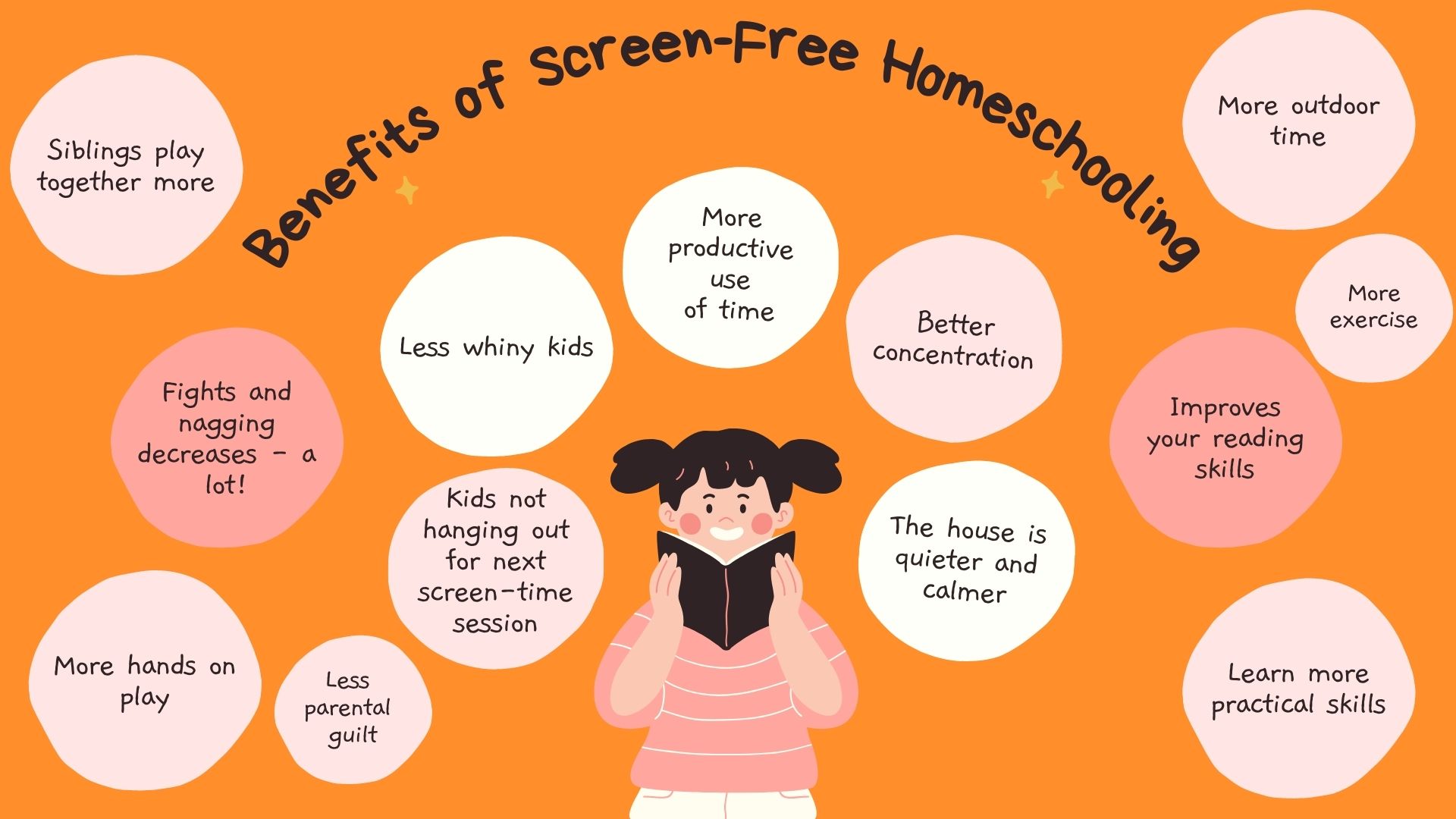 This post has affiliate links. By buying through these links you can help support the website at no extra cost to you.
This post has affiliate links. By buying through these links you can help support the website at no extra cost to you.
Immediate Benefits of Screen-Free Homeschooling
Some of the benefits of screen-free homeschooling (or even a short screen-free fast) are:
- the house is quiet, and there is no longer constant background noise
- children are calmer and less whiny as they’re no longer scheming for the next screen-time session
- imagination skyrockets as children make their own fun!
- children play together more and get along better
- constant fights and nagging over ‘whose turn is it next’ ends
- children are more excited to wake up and play hands-on games together like dress-ups, cubby building, and dolly shows
The following benefits of screen-free time appear more the longer you do screen-free homeschooling.
Children become self-regulated
Most parents have to closely monitor their children’s time on screens when screen-time is frequent during the day. Limits are constantly pushed as children sneakily press ‘Play Next Episode.’
And this becomes a habit.
But, if screen time is rare, children are more constantly self-regulated with screen time. You can ask your child to only ‘watch one episode then give the iPad back to Dad’ without a tantrum or sneaky tactics.
I’ve seen this happen with my son, Luke. The more episodes he watches, the more likely he is to feel unsettled when an episode is stopped. However, if he only watches an episode once in a blue moon, he’s very happy to stop watching after a single episode.
That’s because he remembers all the other non-techy things he can play with and soon buzzes off to do those activities instead.
Reading like crazy!
Kids fall in love with books as they realize they can get just as much adventure out of books as they can from watching a screen.
Their literacy skills increase as they’re more motivated to read books.
Families become more active
Going outside for a run, walk or cycle becomes an exciting business. Because parents have to accompany their kids, the whole family benefits from being more active!
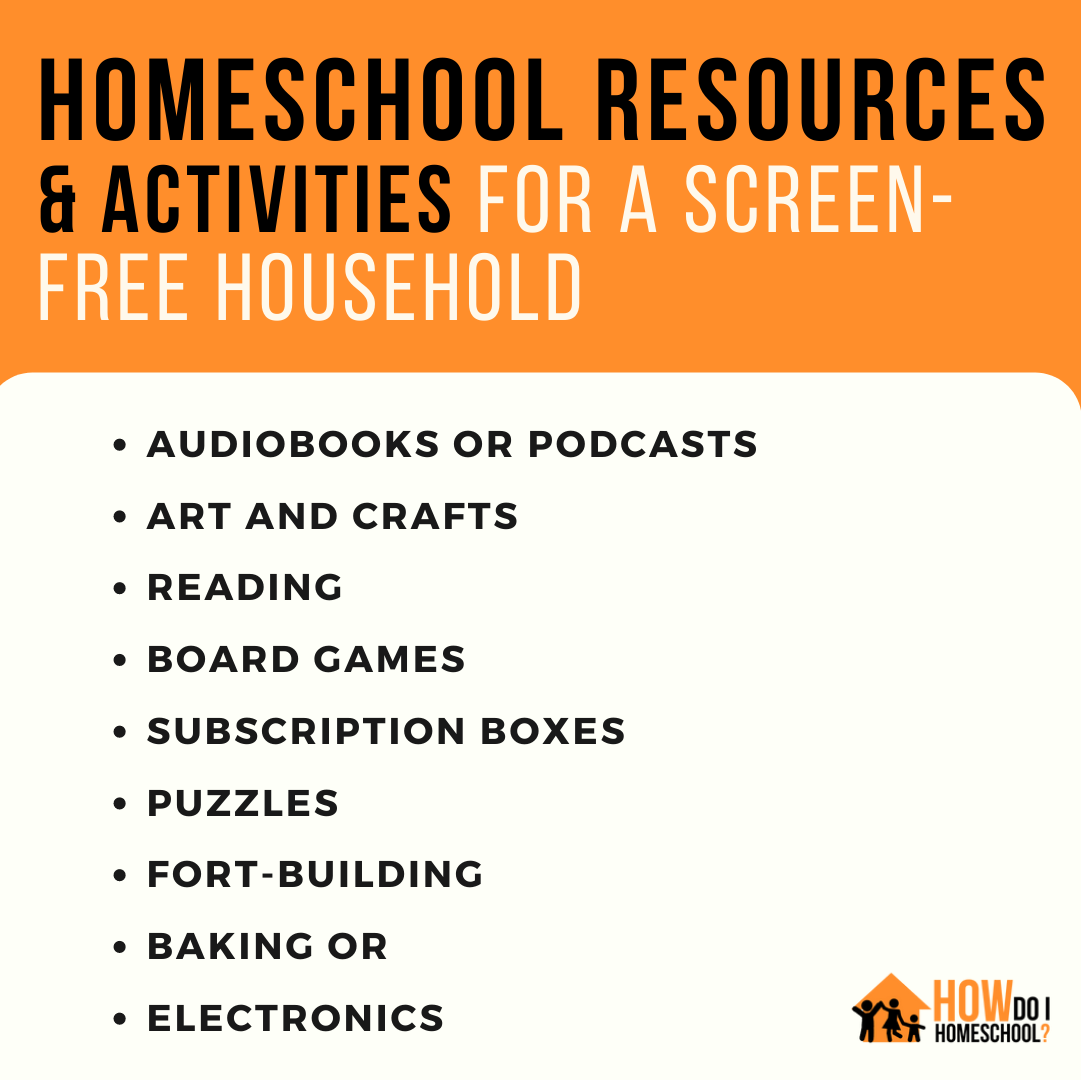
We are closer as a family
Screen-free homeschooling means children interact less with the screen and more with parents and siblings. This means children become closer with their family and more there’s more harmony around the home!
Homeschooling programs becomes entertaining
Instead of children saying, “Okay if I do schoolwork, Mom, can I watch my [TV program]?” they begin to look forward to learning from their schoolwork.
Homeschool curriculum should be fun, and many are! If it’s not, look for a new one. A few choices are BJU Press, Memoria Press, and Schoolhouse Teachers. You can look at a complete list of homeschool curricula here).
Parents have less guilt
Instead of feeling guilty about your children being glued to a screen for longer than they should be, parents feel better, and they have more time to spend in face-to-face interactions with their children.
Learn new skills independently
Consequently, they can also learn new skills by themselves. Because they can read anything themselves and no longer are focused on learning from a screen, they can hire books about anything they’re interested in learning about!
What the experts say
Too much screen time can cause problems. Experts identify these issues:
– sleep problems associated with screen time, especially later at night, cause attention problems, anxiety & depression, social and behavioral problems.
– this can cause unhealthy weight gain and poor academic performance
– if this pattern of screen time continues, there might be a negative structural and functional change in the brain
Children under two years of age shouldn’t have any screen time. Children from 2-5 years old should have no more than 1 hour a day (according to experts). 5-17-year-olds should watch no more than 2 hours a day.
Why “Educational Media” for young children is a COP OUT
Follow the money.
Who makes money when you buy this or that ‘educational program’?
Parents feel good about getting a TV show labeled ‘educational.’ Labeling something educational means parents are more likely to buy it because it immediately becomes ‘good for the kids.’
But hooking parents like this is a big lie worth big bucks. But, if overused, the negative impact of technology on children can outweigh the positive effects.
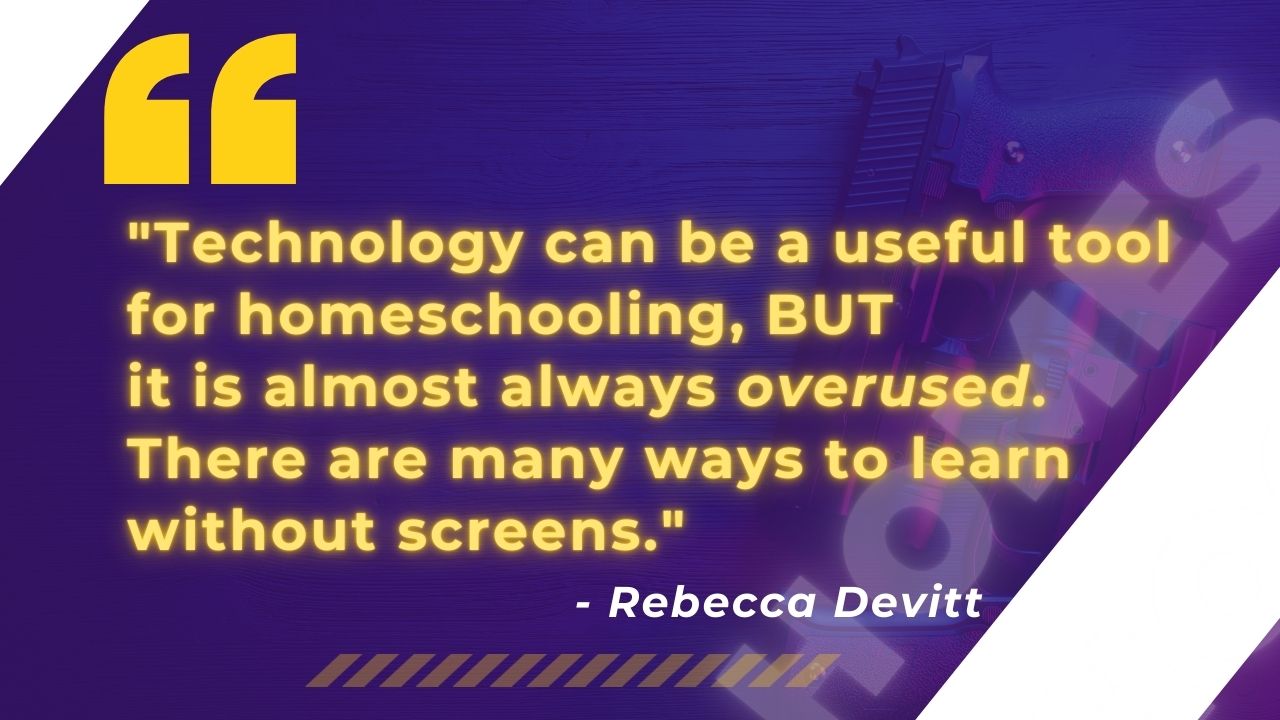
Example: “Minecraft is Educational”
There’s a big push for homeschoolers to learn through Minecraft – a video game where children make things using blocky online elements.
The idea is to get into funschooling. That is, children learn best through interest-based learning, so find something that’s fun and use that to homeschool.
Enter Minecraft.
It’s fun and educational. Yes.
So, NO educational screen time?
Education can be done in so many different ways. Through books, through outside activities, and online screen-time.
Screen time can have its place in your homeschool, and you can slowly introduce screens back in after your screen-time fast of a week.
But don’t think your kids will suffer from a break of a week or more.
Many years ago, my husband and I decided to stop watching television for a month and see how that went. We never went back. There were just too many benefits of going screen-free!
But…screens are the way of the future, aren’t they?
Absolutely. But, screen addiction is such a big thing; it’s essential to safeguard our children by teaching them to self-regulate usage when they’re older (think of all the addicted 30-year-old gamers today…).
Why self-regulation matters and where screen time fits in
Children with self-regulation tend to be happier and more secure individuals who can live for the current pleasures instead of hankering after that coveted future activity.
They can regulate their emotions more, wait their turn, persist with a challenging task, and resist misbehaving impulses.
Where does screen-free homeschooling fit in?
When homeschool parents impose daily screen time hours, they have to regulate the total time spent on technology. Children don’t do that themselves.
Furthermore, there’s often a fight as children push the boundaries of what they’re allowed to do.
When you get rid of screens, you don’t have to regulate your children’s lives so much, and their mental health improves as they are no longer arguing constantly.
Why screen time limits don’t work well in homeschooling families
Screen time is usually strictly measured and enforced. This leads to arguments and tantrums, as well as fall-out sulky feelings. This can waste huge reams of your day if it is a constant struggle.
Will my kids get over it if we do a screen time fast?
You will be shocked at how quickly children start exploring new ways to entertain themselves.
For most people, the change takes a day. And then, after children know that screen-free homeschooling is the new way of life, they start engaging more with the world around them. Their outdoor time rises, and active learning becomes the new way to acquire knowledge.
Why a screen time fast and not just limit screen time limits?
When your children are addicted to screens, limiting screen time won’t do much to help them get off the track of thinking about screens.
When they know screens are no longer the way Mom and dad educate, children reset their brains and start finding new activities.
Kids need to get bored before they come up with something else. And you’ll be surprised with what they come up with. You’ll probably think to yourself that you didn’t know they had it in them.
What about computer-based learning for homeschooled children?
Occasional speeches animal or travel videos that complement book lessons can be a good idea for homeschool families.
But, it’s essential to do the hard bookwork first and then save the videos until the end of the lesson.
Screen free homeschooling creates a habit of focused learning
When a child is thinking about watching something online, they’re distracted and find learning difficult.
When children know videos aren’t an option during school time, they can develop a habit of focused attention and concentration.
Better concentration leads to increased homeschool test scores and less time in the books!
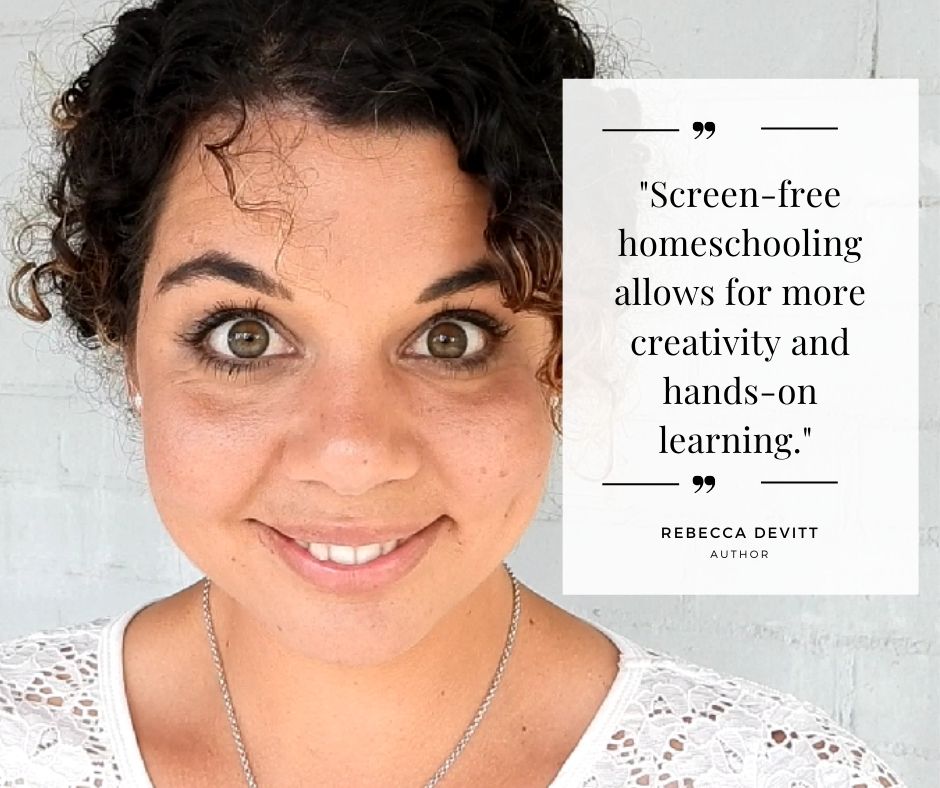
Encourage active learning
Turn off the screens when you’re homeschooling, and you’ll notice learning will sky-rocket. Children learn more practical skills and keep their minds occupied with other things.
Active learning during outdoor time is also a great idea, and something Charlotte Mason (a homeschool advocate) encouraged.
Screen free time for moms and dads
Don’t forget that your children are watching your example. So, if you’re on your phone or watching videos during the day, your kids will want to do likewise.
Because you’re distracted and not available to teach, your children’s education will also suffer for it.
Therefore, keep your phone time to a minimum and only answer essential calls or texts. Or do so during the children’s quiet time.
Offline homeschooling curriculum options
Did you know there are homeschool curricula that come in boxes so you can engage in 100% offline homeschooling? that don’t use internet access, and many other ways to learn offline!
A few popular ones are:
Or you can check out other homeschool curriculum here.
Other ideas on how to homeschool without internet
As well as curriculum, you can play screen-free games to keep your kids occupied (I have a few screen-free game ideas below).
1. Subscription Boxes
But then there is this nifty thing called subscription boxes. You can get all sorts, but the STEM ones are pretty fun, especially if you’ve got older kids.
Groovy Lab, Clixo, and Womple Boxes have some great options to choose from.
2. Arts and Crafts
Getting into arts and crafts is an excellent idea if you want to get away from technology. You can get some painting supplies or buy yourself a craft box for regular delivery here.
I recently bought a big craft box for the kids, and we’ve whipped it out on rainy days or any other times the kids feel inclined to get crafty.
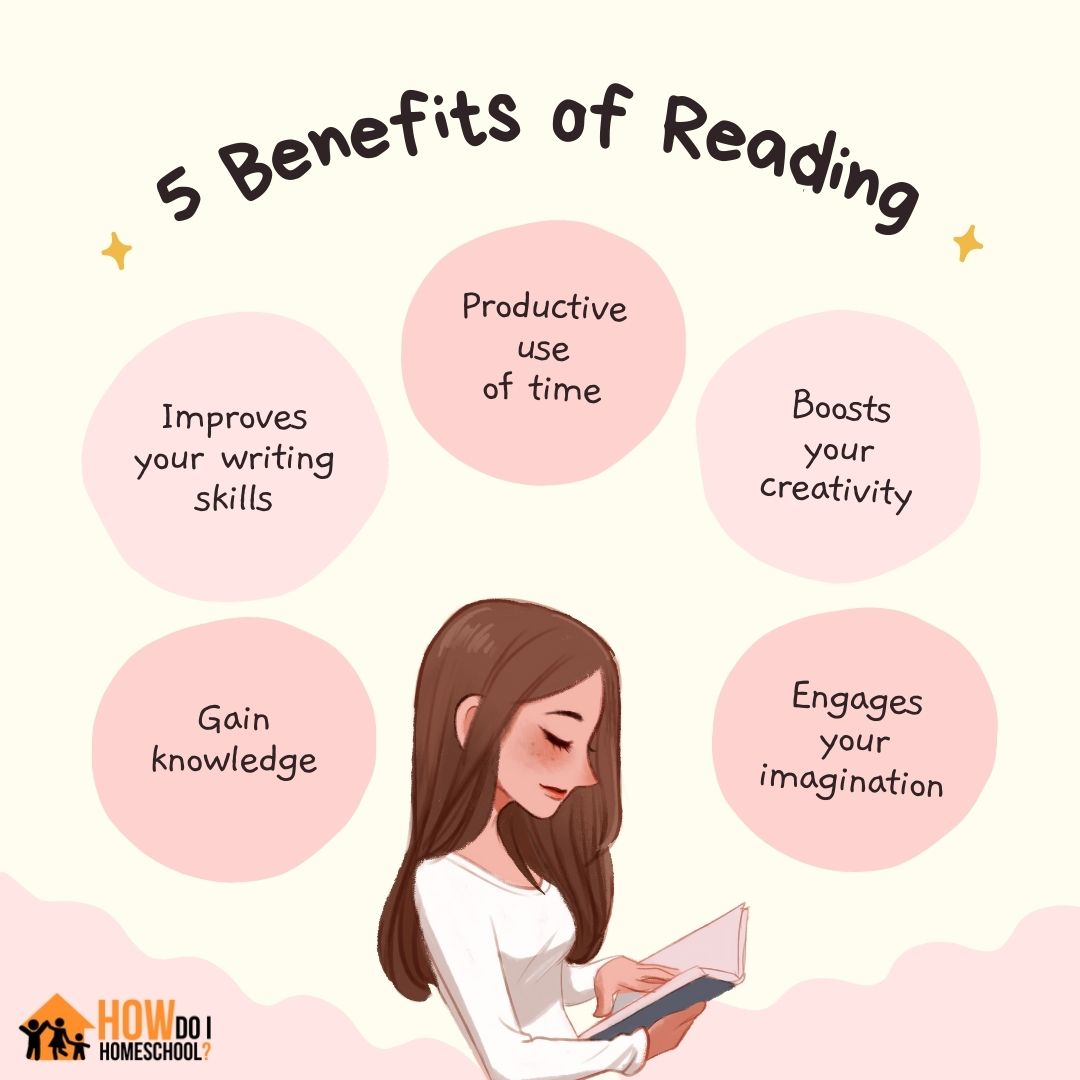
3. Reading
The best place to go for books is the library. Lug 50 books back, and you have a permanent babysitter!
Amazon has just about every book under the sun if you’re interested in something specific.
4. Learning Board Games
Board games can be fun and educational. They’re also an excellent way for homeschool families to bond without screen-time.
You can grab an exciting new board game or play an old favorite.
5. Listen to an audiobook or podcast
Audiobooks are great. And most of them are available free on Youtube. You can also get an Audible subscription for the obscure ones.
However, listing to audiobooks will provide your kids with hours of fun and entertainment while you get time to put up your feet and relax!
6. Break out a new puzzle
Puzzles are great…and they take hours!
A new puzzle develops patience and gives children endless fun. You can buy them pretty cheaply from opportunity shops or get them online like this map of the world.
7. Build a fort and snuggle up with a good book
Fort building is a hit, especially with young children. It can be a great temporary hideaway.
Luke and I recently built one out of a gumtree that I trimmed. As we trimmed more things around the yard, he added to his cubby house with the new branches. It’s quite an eclectic mix now!
8. Bake some sweet treats or make a main meal
Baking is so much fun. But, many people don’t know how to do it these days. Grab a cookbook and learn some new tricks.
Or if you don’t feel confident, these ladies will help you and your kids learn how to cook healthy snacks here.
9. Get into electronics
Some kids are nuts about electronics. Why not foster this interest by setting them up with the things they need to make something fun, like a car or a robot.
Don’t know where to start? Check out Creation Crate, which does subscription boxes for electronic interests.
More ideas for screen free homeschooling
Homeschooling programs are a great way to start when looking for educational material, but they only go so far.
Make sure you make good use of other homeschooling resources to make screen free homeschooling a more exciting prospect for your kids.
10 Screen free activities for a rainy day
Play-Doh Creations
Grab a ball of playdough and make something out of it. Your child has to guess what it is. Then it’s his turn to get creative.

Paper Airplane Flying Contest
Make paper airplanes and see who can fly them further. Also, make the airplanes out of other materials (foam?) and see if they fly.
Sock Skating
Whack on a pair of socks and see who can slide the furthest on your wooden flooring or tiles.
Balloon Fun
Fill up some balloons and experiment with what it takes to pop a balloon. What does force do? How sharp does an object need to be to pierce the balloon?
The Floor is Lava
Place some clothes on the floor with lots of gaps in between. Then pretend the floor is lava and you’re dead if you step on the lava!
Tumbling Tower
Grab some smooth rocks or similar objects and pile them on top of each other. Each child gets a turn, and the winner is the one who can make the highest pile.
Freeze Dance
Put your funkiest music on, and dance like crazy…until mom turns the music off. The last one to stop dancing is … OUT!
Conclusion
In conclusion, screen-free homeschooling is a great idea. It allows for more family time and encourages more creativity and hands-on learning. Taking away screens can also help improve academic performance, mental health, and social skills. If you’re looking for a more enriching homeschool experience for your family, try going screen-free!
The post Screen-Free Homeschooling: The New Way to Learn appeared first on How Do I Homeschool?.
